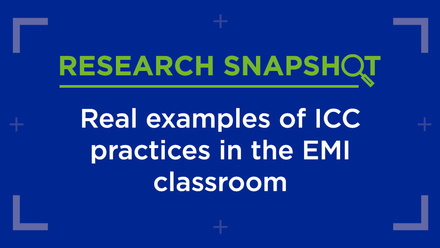6 ways to save the academic year from coronavirus

As the impact of coronavirus continues to grow around the world, higher education institutions are implementing actions to ensure that their students are able to complete their academic year. While some universities and colleges had no choice but to cancel courses and close all operations due to COVID-19, some institutions have been fortunate enough to be able to adapt their learning, teaching and research methods to continue to operate.
The following are examples of actions academic institutions around the world have implemented.
1. Moving in-class courses to online delivery
In Australia, almost all universities are turning towards online education. The University of Melbourne has paused all operations to be able to transition into a virtual campus. During their extended winter break, they will be pre-recording their large lectures to be able to offer them online. The University of Melbourne will also be working on delivering small-size lectures as well as in-person tutorials on an online basis.
In Canada, faculty members across the country are responding to COVID-19 by learning how to offer their courses and lectures online. Royal Roads University’s Prof George Veletsianos states that when it comes to teaching, it is the content of the course that matters rather than how the course is delivered. Therefore, during these unprecedented times, Prof Veletsianos advises that each faculty member should identify the technological platform that they feel comfortable using (ie email, learning management systems, or real-time learning platforms), rather than experimenting with a new one.
In China, one of the institutions that have made great strides to implement online courses is Zhejiang University. Within only two weeks of the executive team deciding to transition to online learning, Zhejiang University was able to offer more than 5000 classes online, all while attracting more than half a million visits to their online platform: Learning at ZJU.
In the United States, Yale University moved all its courses online by delivering them through online tools including Canvas and Zoom. Through their teaching and learning centre, the university supported faculty members and graduate student teaching assistants as they transitioned to an online instruction model. Other academic institutions in the United States are also turning to online teaching, including most colleges and universities in Florida.
2. Adapting graduate studies and research
In Australia, Murdoch University has implemented hygiene and sanitation measures so that critical research can continue. An example is the requirement of physical distancing while conducting research.
In Canada, the Faculty of Graduate Studies at Lakehead University is allowing all graduate students to defend their thesis online. By using the videoconferencing platform Zoom, Master's and doctoral students will be able to maintain social distancing to complete their programme of studies regardless of where they are located.
In China, academic institutions have also moved towards an online thesis defense approach. Tsinghua University and Northwestern Polytechnical University are leading the way, with the latter having almost 3000 graduate students that virtually defended their thesis.
In the United Kingdom, the University of Essex has announced to its international PhD students that their immigration status can remain valid as long as they remain in contact with their supervisor every month through Skype or Zoom.
In the United States, Harvard University mentioned that, when applicable, it would provide guidance and additional resources to Master's and doctoral students on how to adapt their research and make the necessary arrangements to continue their work remotely.
3. More flexibility and adaptation in the format of final examinations
In Canada, the University of Victoria has authorised its faculty members to use the following measures to assess if the student has met the learning outcomes:
- “Change the weighting of assignments/tests to determine a final grade.”
- “Assess any remaining final projects, essays, assignments, etc that do not require in-person delivery or attendance.”
- “Add a new assessment component.”
- “Determine an alternative means of assessment to an in-person final exam.”
In the United Kingdom, the University of Oxford will replace traditional exams with online assessments. The university expects the majority of courses to move into online exams that will follow an open-book approach. Therefore, the university is currently determining the delivery mode of these exams to ensure that all students can successfully take the exam while supporting any accommodation requirements (ie accessibility, learning needs, living environments and time zones).
When it comes to teaching, it is the content of the course that matters rather than how the course is delivered
4. Deferring final exams to a later date
Earlier this year, Australia’s Monash University announced that it would be postponing its exams in efforts to protect their university community and prevent the spread of the coronavirus. The university would also provide a 14-day notice to students, advising them on the rescheduling of the exams.
In the United Kingdom, the University of Cambridge moved its examinations to online assessments. For students unable to take the assessment during the normal examination period due to specific accommodations (ie, caring responsibilities, illness or technical difficulties), the university will let them defer their exams so they can complete the assessment once operations are back to normal, which is unknown at the moment.
5. Implementing new grading systems
In Canada, the Senate of the University of Ottawa just approved a motion so that during times of crisis, professors and faculties have the latitude to implement the most appropriate evaluation methods to their programmes while upholding academic standards and integrity. The motion will also allow faculties to apply a satisfactory/non-satisfactory grading system.
Another Canadian institution that implemented a new grading method for this term is the Northern Alberta Institute of Technology. The institute will have an honours/pass/fail grading system, assessing whether a student has exceeded (honours), met (pass) or not met (fail) course expectations.
In the United States, colleges and universities are also moving towards a pass/fail grade model – including law schools. Berkeley School of Law, Harvard Law School and Stanford Law School are among several leading law schools in the United States that have implemented new grading systems based on the pass/fail model.
Lastly, Brigham Young University is an academic institution in the United States that has shown an innovative approach to grading, as it will provide two options to their students. At the end of the semester, faculty members will give them a letter grade on their courses. The students then have the option to either maintain the letter grade or receive a pass/withdraw instead. Grades ranging from A–C will be considered a pass, and students with grades from D–F can opt to withdraw from a course.
6. A global problem, a global solution?
As COVID-19 is a global issue, it might favour a global effort. Colleges and universities have the opportunity to develop partnerships with other academic institutions to offer support to complete sessions and exams. This solution, further explored, could help ensure that students complete their academic year, wherever they are.
In Canada, two higher education institutions specialise in online distance education: Athabasca University, offering the majority of its courses in English; and Université TÉLUQ, offering the majority of its courses in French. With infrastructures already in place for online delivery, it could be beneficial for other Anglophone and Francophone colleges or universities who are new to online teaching to partner with these specialised academic institutions for the delivery of online courses.
As higher education institutions respond to COVID-19, colleges and universities will continue to implement measures so that their students can successfully complete the academic year. Whether it is by completely shifting teaching methods towards online delivery; allowing Master's and doctoral students to defend their thesis remotely through online platforms; or by asking faculty members to rethink course evaluations and grading systems mid-semester; students and staff have shown indubitable resilience during these unprecedented times of exceptional academic measures.






